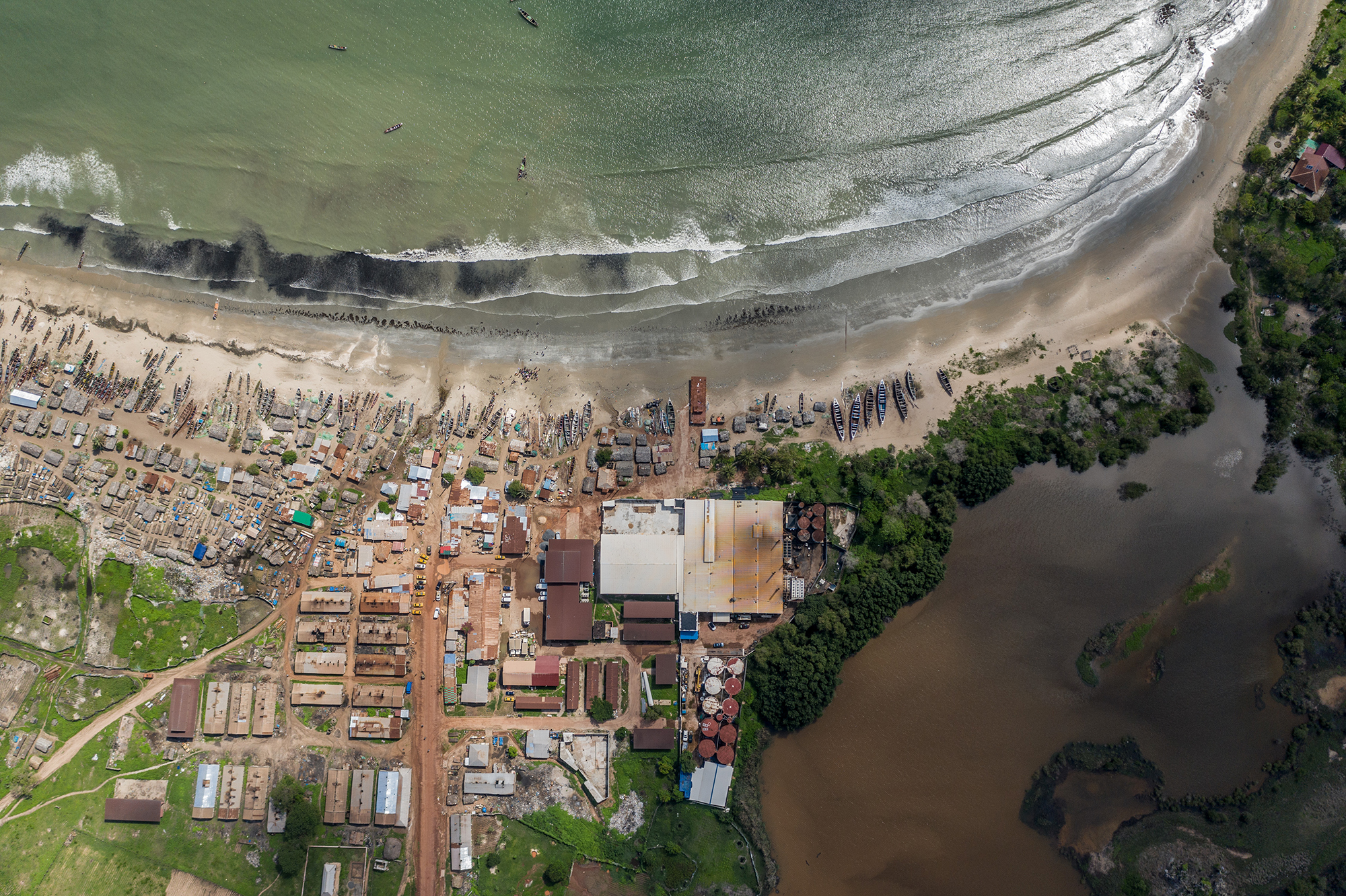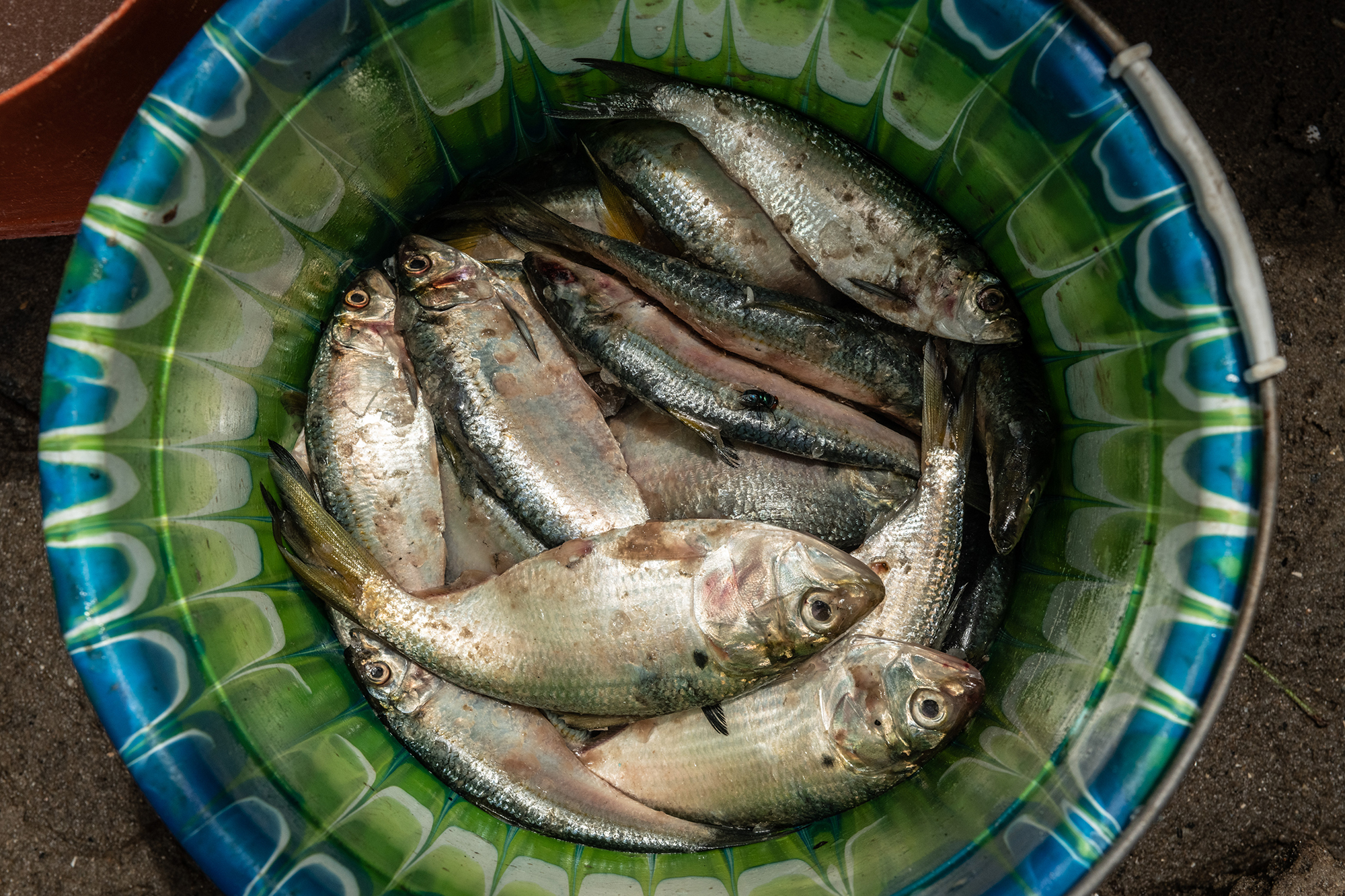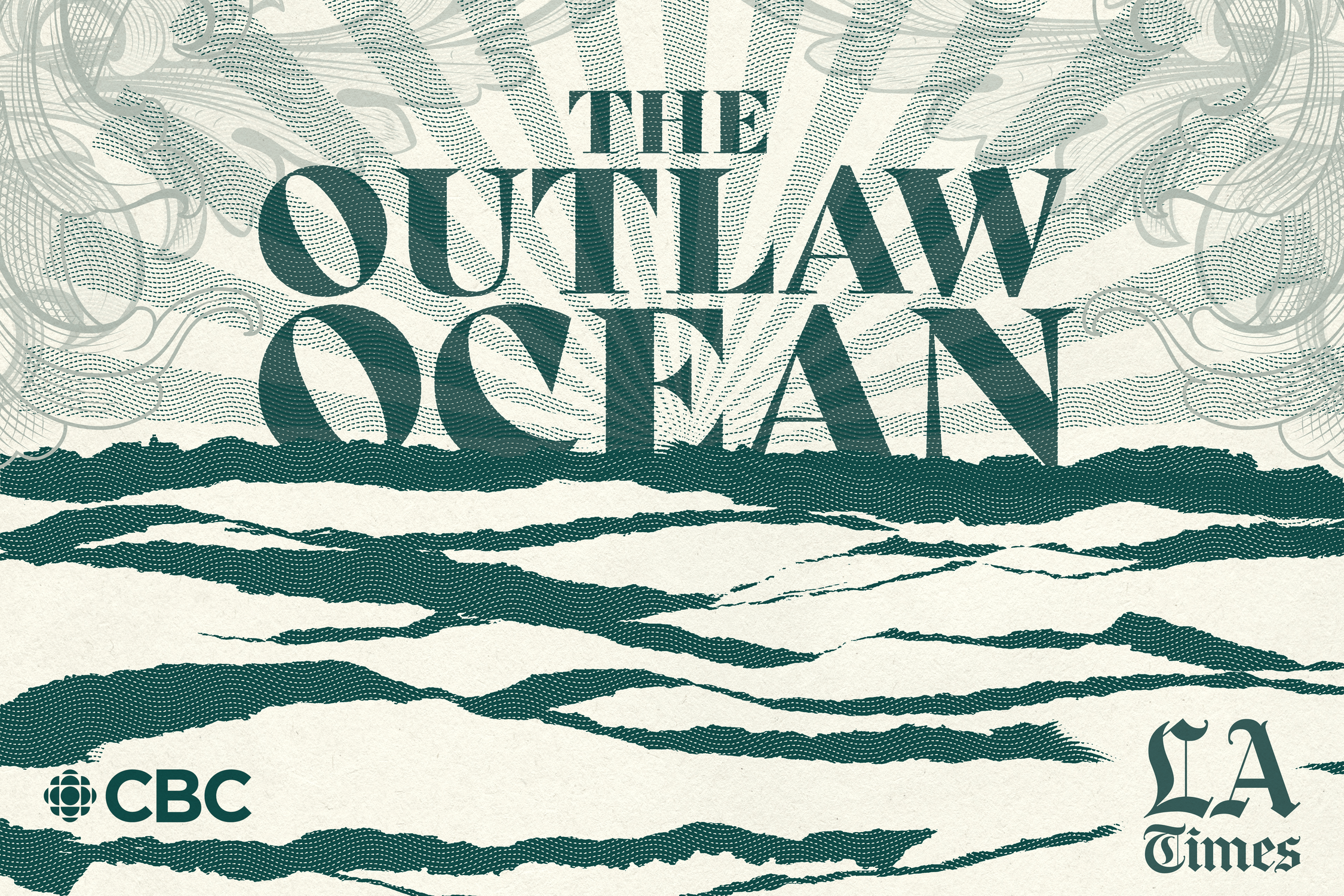To investigate this unusual situation, The Outlaw Ocean Project, a non-profit journalism organisation based in Washington, DC, travelled to west Africa to join an offshore patrol where hundreds of Chinese-owned and other fishing boats trawl for fishmeal production, cratering the local food source and polluting the coastline.
The fifth episode of The Outlaw Ocean podcast, from CBC Podcasts and the LA Times, discusses fishmeal – meant to help save the seas from running out of fish but is actually accelerating the problem – and the grim consequences for Africa’s smallest country, Gambia.
Listen to it below:
Gunjur, a town of about 15,000 people, sits on the Atlantic coastline of southern Gambia, the smallest country in mainland Africa.
In the spring of 2017, the town’s white-sand beaches were busy as fishermen steered their long, vibrantly painted wooden canoes, known as pirogues, toward the shore, where they transferred their flapping catch to women waiting at the water’s edge.
The fish were taken to nearby open-air markets in rusty metal wheelbarrows or in baskets balanced on heads. Boys played soccer as tourists watched from lounge chairs. In the evening, the beach was dotted with bonfires. There were drumming and kora lessons; men with oiled chests grappled in traditional wrestling matches.
But just five minutes inland was a more tranquil setting – the wildlife reserve known as Bolong Fenyo, meant to protect 790 acres of beach, mangrove swamp, wetland and savanna, as well as a lagoon.
A marvel of biodiversity, the reserve was integral to southern Gambia’s ecological health and, with hundreds of birders and other tourists visiting each year, to its economic health as well.
 Aerial shot of the shore above a fishmeal plant, 2019, Gambia. (Photo: Fábio Nascimento / The Outlaw Ocean Project)
Aerial shot of the shore above a fishmeal plant, 2019, Gambia. (Photo: Fábio Nascimento / The Outlaw Ocean Project)
But on the morning of 22 May, the Gunjur community woke up to discover that the Bolong Fenyo lagoon had turned a cloudy crimson overnight. Dead fish floated on the surface. Some residents wondered if the apocalyptic scene was an omen delivered in blood. More likely, water fleas in the lagoon had turned red in response to sudden changes in pH or oxygen levels. Soon, there were reports that many of the area’s birds were no longer nesting near the lagoon.
A local microbiologist concluded that the waters contained double the amount of arsenic and 40 times the amount of phosphates and nitrates deemed safe. Pollution at these levels could have only one source: illegally dumped waste from a Chinese fish processing plant called Golden Lead, which operates on the edge of the reserve.
Golden Lead and the other factories were built quickly to meet exploding global demand for fishmeal, a lucrative, dark-yellow powder made by cooking and pulverising fish.
Exported to the United States, Europe and Asia, fishmeal is used as a protein-rich supplement in the booming industry of fish farming, or aquaculture.
 Bucket with few bonga fish, 2019, Gambia. (Photo: Fábio Nascimento / The Outlaw Ocean Project)
Bucket with few bonga fish, 2019, Gambia. (Photo: Fábio Nascimento / The Outlaw Ocean Project)
West Africa is among the world’s fastest-growing producers of it: more than 50 processing plants operate along the shores of Mauritania, Senegal, Guinea-Bissau and Gambia.
And the volume of fish they consume is enormous.
One Gambian plant alone takes in more than 7,500 tons of fish a year, mostly of a local type of shad known as bonga – a silvery fish about 25cm long.
The residents of Gunjur were told that Golden Lead would create jobs, a fish market and a new, paved road. In reality, the plant’s putrid stench forced the closure of a once-booming beachfront hotel. The local fish market was affected and the winding, pot-holed road became a safety hazard for residents and tourists alike.
For the area’s fishermen – most of whom cast their nets by hand from pirogues powered by small outboard motors – the rise of aquaculture has transformed their working conditions.
Hundreds of legal and illegal foreign fishing boats, including industrial trawlers and purse seiners, began crisscrossing the waters off the Gambian coast, decimating the region’s fish stocks and jeopardising local livelihoods.
One fisherman who sold his catch at the Tanji market, north of Gunjur, said that 20 years ago, bonga were so plentiful that they were sometimes given away for free. But the price of the fish has soared in recent years, and for many Gambians, half of whom live in poverty, bonga is now more expensive than they can afford.
Today, Gambia exports much of its fishmeal to China and Norway, where it feeds an abundant and inexpensive supply of farmed salmon for European and American consumption.
Meanwhile, the fish that Gambians have relied on for generations are rapidly disappearing. DM/OBP
Ian Urbina is the director of The Outlaw Ocean Project, a non-profit journalism organisation based in Washington, DC, that focuses on environmental and human rights concerns at sea globally.
Listen to Episode 1 here
Listen to Episode 2 here
Listen to Episode 3 here
Listen to Episode 4 here




 Bucket with few bonga fish, 2019, The Gambia. (Photo: Fábio Nascimento / The Outlaw Ocean Project)
Bucket with few bonga fish, 2019, The Gambia. (Photo: Fábio Nascimento / The Outlaw Ocean Project)